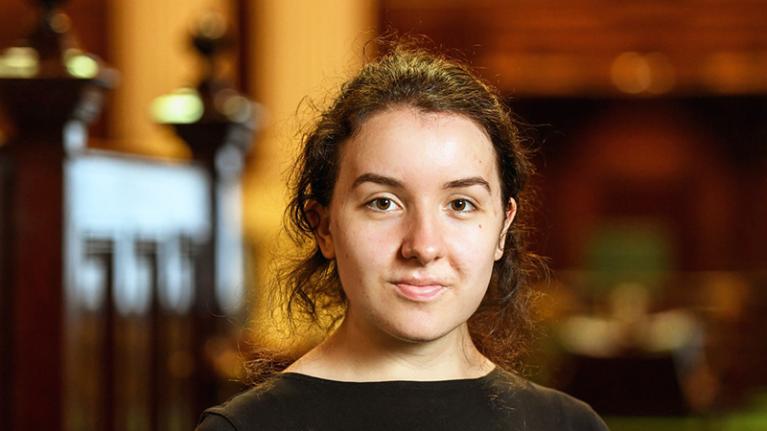How to nail your VCE exams: 5 tips from successful students
Ten Weetbix for breakfast? Lucky underpants? Pachelbel’s Canon on repeat? Everyone has their own superstitions when it comes to acing exams, but we spoke to the experts.
With final Year 12 exams fast approaching, here are some top tips for being your best at VCE from current VU students who scored an ATAR over 90.

1. Create winning study habits
“Changing your mindset from 'What have I learnt?' to 'How can I apply this knowledge to the real world?' will bring about good marks. You need to extend your understanding of a concept by seeing the theory applied to real life settings. By tackling this question, you will be able to bump your marks up, thereby increasing your study score.” – Thomas Thien Ngoc Nguyen.
“Be creative with your note-taking. I found that drawing a diagram or picture next to a specific piece of information meant I could recall that piece of information in an exam just by thinking of that picture.” – Mary Baras-Miller.
“Build a relationship with your teachers and use them as a resource while you still can! Your teachers want to see you succeed and if you ask the right questions in and beyond the classroom, you'll find a lot of helpful hints and tips you would not have by just attending class.” – Annabelle Goonasekera.

2. Keep a good work/life balance
“Throughout Year 12 I always made sure to balance my time, making sure I got through my study and homework, while still getting enough sleep, exercise, chatting with friends and time for myself. This helped to make sure I was very efficient and effective in my study.” – Ella Guinane.
“To succeed and perform my best academically I had an 'outlet'. An activity outside of studying that allowed me to step away from the books for a few hours each week and reenergise myself. It’s impossible to be switched on and studying all the time, your brain will simply be overloaded. Allow yourself to step away from the books. You’ll return more focused and motivated to excel.” – Declan O’Brien.

3. Find a stress defence that works for you
“In the hour leading up to the exam, I would walk around the school rather than wait outside the exam room. Walking around the school is beneficial as exercise combats stress and places you in the right mind frame.” – Thomas Thien Ngoc Nguyen.
“Take your time in the exam. If you're feeling overwhelmed, just close your eyes and give yourself a 30 second breather (which you can always afford) to ground yourself. This will prevent you from rushing your work.” – Mary Baras-Miller.
“Towards exam time, I relaxed and took the stress off myself by acknowledging that I had put in a large amount of effort throughout the year. This made me feel as though there was nothing more I could do and it was the final piece of the puzzle for the year in order to achieve my results.” – Sarah Arrowsmith.

4. Think outside the box – exams aren’t everything
“Outside of VCE, the things that you learn may potentially assist you in your exams and at university. While VCE may be important to you at this point in time, try to look further beyond Year 12 and see how you can apply your acquired knowledge into practice.” – Thomas Thien Ngoc Nguyen.
“The advice I’d give my 17-year-old self and others is that your ATAR won’t matter in the real world. I know Year 12s have worked so hard towards this, but if you strive towards what’s truly important to you, you’ll find happiness." – Lisette D'Souza
“Don’t let the year consume you. If you have the motivation and desire to achieve results, you will get there. It takes more than just study to succeed in VCE and a large amount of it lays on your motivation and passion to do well.” – Sarah Arrowsmith.

5. Creative ways to beat the procrastination bug
“Be creative with your note-taking. I found that drawing a diagram or picture next to a specific piece of information meant I could recall that piece of information in an exam just by thinking of that picture.” – Mary Baras-Miller.
“Giving yourself a break is as important as working hard. Rather than study for four hours straight, do 30 minute study sessions with five minute resting periods in between. In doing so, your brain will not wander off as much and you'll maximise productivity.” – Thomas Thien Ngoc Nguyen.
Related
Bonus tips from VU’s Learning Hub experts
Did you know that VU students have access to continuous study and employability support through our Learning Hubs?
Lynette Frey, Learning Hub Coordinator, says that tried and true methods for success include “setting goals and planning your study schedule, allowing enough time to redraft assignments, connecting with other students and looking after yourself (eat well, exercise, get enough sleep and take regular breaks).”
For more top study tips Cody McCormack, VU Learning Adviser, suggests checking out online resources from Youth Central and VCE Study Guides.
Considering unis for next year?
Find out why VU is a fantastic choice for your preference list.